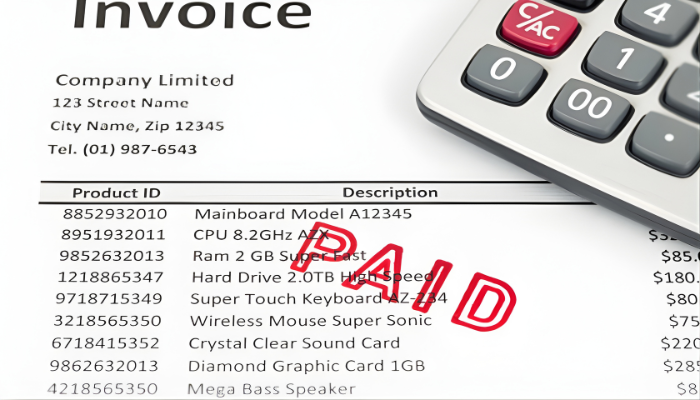
Choosing your financial factoring partner and fostering that relationship with trust, efficiency, and honesty, is vital to the growth and stability of your business.
Four Key Elements to Consider When Choosing a Factoring Company
#1 - What are the costs associated with the company?
Never be weary about getting the costs of business in writing. They are usually present in the agreement, but read the fine print. When factoring, you should know the details of your advance, factoring fees, and any potential reserve requirements. There may also be additional charges inherent in the process, depending on how complex and layered your needs may be. You may also face application fees, processing fees, and ACH fees.
Fees, however, are not everything when considering the totality of costs. A company with the highest fees may have the lowest costs, and vice versa. Factoring is still considered by many business publications to be one of the best strategies to resolve cash flow issues within a small business. Fees are not the business; they are the costs associated with doing business. It is reasonable for a factoring company to have fees to finance their own costs. You should decide what costs seem fair and reasonable for your business also.
#2 - How do you feel about the factoring company’s customer service and integrity?
Customer service is often linked to a company’s moral standing. The way it treats its own customers and business partners is a direct reflection of its integrity and the moral directives from which it operates. When you engage in a relationship with a factoring company, it is one that will involve an immense amount of contact, honesty, and dependability. You are sure about your end of that agreement, but you also need assurance that your business partner is just as trustworthy.
Contact with your factoring company will be vital and may often be an immediate need. Your factoring company should be reliable about their prompt, courteous, and helpful phone and e-mail support. They may also have online chat support that is either instantaneous or requires only a momentary wait. You may have such important questions that a face-to-face meeting is needed. They should be open and flexible in satisfying your needs for contact.
Your factoring company will also have direct contact with your customers. You want them to be a mirror image of your own company in the level of class, respect, and honesty that you afford your customers.
#3 - Your business is flexible in dealing with various kinds of customers and contracts. Will your factoring partner be equally flexible?
The flexibility you have in your business is one of the key reasons why you have kept your business volume on a steady rise and it’s why you have stayed afloat during difficult financial environments. You want your factoring partner to be just as flexible with you and your customers as you have become throughout the life of your business.
If you do not plan to factor all of your clients, make sure your factoring partner is flexible in that decision. You may actually find that it’s favorable to you to factor as many as you can as the fees become lower the more you factor. Find out what those levels are and where the benefits lie for your company regarding factoring volume.
Is your company seasonal? This may, for example, be the case for a construction company which does most of its work in the summer months. Can you choose between a month-to-month contract or does it have to be annual? The answers may vary company-to-company, so ask the questions and work with the factoring company to figure out a plan that best benefits your goals.
#4 - Are they on par with the leading experts in their field?
You are going to a factoring company because you want their knowledge, expertise, and leadership in getting a more workable cash flow solution for your company. When you have an immediate question, you want an immediate answer upon which you can both depend and make decisions regarding the future health and stability of your company.
Factoring is a standard process, yet different industries have inherently different standards and practices that are required both legally and in methodology.
Trucking companies may need fuel cards factored as part of their agreement. Construction companies may need equipment. Find a factoring company that will work with you to create a program that will provide you with accessibility to whatever needs or services you require for growth. Ask about the experience they have had with industries like your own. Ask about their success stories as well as their challenges and how they overcame those challenges.
Forge the Partnership
Make your choice count. It will be a long relationship that will be imperative to the success of your business.

















